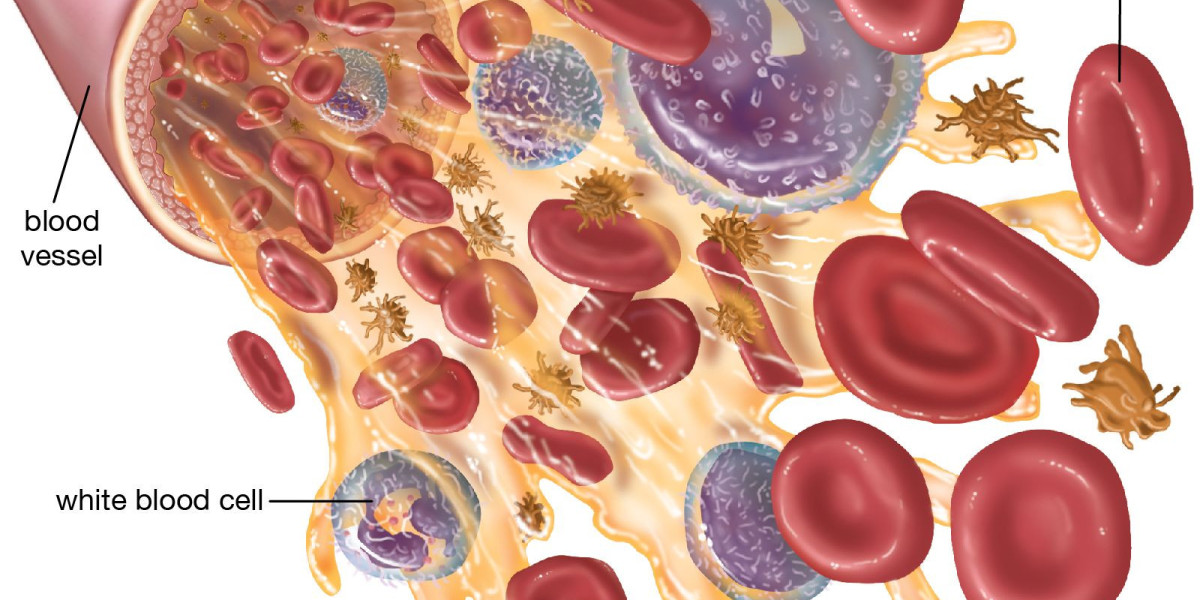White blood cells (WBCs), also known as leukocytes, are the unsung heroes of the human immune system. These specialized cells act as the body’s defense mechanism, detecting and destroying harmful invaders such as bacteria, viruses, parasites, and foreign substances. Without them, our bodies would be vulnerable to infections, diseases, and systemic breakdowns. In this comprehensive article, we explore the role of white blood cells in the immune system, the different types of WBCs, how they function, and the relevance of antimicrobial treatments like those sourced from a ceftriaxone injection supplier in supporting white blood cell action in combating infections.
The Immune System and Its Guardians
The immune system is a complex network of cells, tissues, and organs that work together to defend the body against pathogens. Among its most vital components are white blood cells, which circulate in the blood and lymphatic system. Unlike red blood cells that transport oxygen, white blood cells are tasked with identifying and eliminating threats.
White blood cells originate in the bone marrow from hematopoietic stem cells and are classified into two broad categories:
Innate Immune Cells – The body’s first line of defense.
Adaptive Immune Cells – Specialized responders that retain memory of pathogens for faster future responses.
Types of White Blood Cells and Their Functions
There are several types of white blood cells, each with unique roles:
1. Neutrophils
Neutrophils are the most abundant type of WBC and are considered the first responders to microbial infection. They engulf and digest pathogens in a process called phagocytosis. When you have an infection, your body rapidly produces more neutrophils to contain it.
2. Lymphocytes
Lymphocytes include B cells, T cells, and natural killer (NK) cells. These cells are crucial for adaptive immunity.
B cells produce antibodies that tag pathogens for destruction.
T cells help kill infected cells and coordinate the immune response.
NK cells attack virus-infected cells and tumors without prior sensitization.
3. Monocytes
Monocytes circulate in the blood and then migrate into tissues to become macrophages or dendritic cells. Macrophages engulf pathogens and debris, while dendritic cells present antigens to T cells, initiating an immune response.
4. Eosinophils
Eosinophils combat parasites and contribute to allergic reactions. They release enzymes that break down invading organisms.
5. Basophils
Basophils play a role in allergic responses and inflammation. They release histamine, which dilates blood vessels and attracts other WBCs to the infection site.
White Blood Cells in Action
When a pathogen breaches the body’s external barriers (like the skin or mucous membranes), white blood cells jump into action:
Detection: Receptors on WBCs recognize foreign invaders or abnormal cells.
Signal Transmission: They release signaling molecules like cytokines to coordinate a response.
Elimination: WBCs directly attack invaders or mark them for destruction.
Memory Formation: Adaptive immune cells remember past infections for faster future responses.
This coordinated effort ensures the body can respond rapidly to both known and novel threats.
Infections and the Need for Medical Intervention
Despite the immune system’s efficiency, there are times when the body cannot fight off infections alone especially if the immune system is compromised or if the pathogen is particularly aggressive. In such cases, medical intervention with antibiotics becomes necessary. This is where the role of a ceftriaxone injection supplier becomes critical.
The Role of Ceftriaxone and Antibiotics in Supporting Immunity
Ceftriaxone is a third-generation cephalosporin antibiotic used to treat severe bacterial infections like pneumonia, meningitis, and sepsis. It works by inhibiting bacterial cell wall synthesis, leading to the death of the bacteria.
In clinical practice, ceftriaxone is often administered via injection, especially in hospital settings. This is crucial when patients need immediate, broad-spectrum antibiotic action. A ceftriaxone injection supplier ensures the consistent availability of this life-saving drug in healthcare facilities, especially during outbreaks or in high-risk environments.
When Do White Blood Cells Need Help?
Several scenarios may impair the ability of WBCs to handle infections on their own:
Immunocompromised Patients: People undergoing chemotherapy, those with HIV/AIDS, or transplant recipients on immunosuppressants often have reduced WBC counts.
Antibiotic-Resistant Bacteria: Pathogens that have developed resistance require stronger or combination therapies.
Severe or Systemic Infections: Conditions like sepsis can overwhelm the immune system, necessitating rapid intervention with antibiotics.
In these cases, timely access to effective antibiotics from reliable ceftriaxone injection suppliers can be the difference between life and death.
Boosting White Blood Cell Function
Maintaining a healthy immune system helps white blood cells function optimally. Here are some ways to support them:
Nutrition: A diet rich in fruits, vegetables, and lean proteins provides essential vitamins (like A, C, D, E) and minerals (like zinc and iron).
Exercise: Regular moderate exercise improves circulation, allowing WBCs to move efficiently through the body.
Sleep: Adequate rest is crucial for immune regulation.
Hygiene: Preventing infection reduces the burden on WBCs.
Medical Support: When necessary, antibiotics especially those sourced from a trusted ceftriaxone injection supplier can provide crucial assistance.
Innovations and Research
Modern immunology continues to explore how white blood cells communicate, adapt, and evolve in response to new pathogens. From developing cancer immunotherapies to creating vaccines and synthetic antibodies, understanding WBC functions is central to nearly all areas of medical research. Suppliers of essential medications like ceftriaxone play a key role in translating this research into real-world clinical outcomes.
Conclusion
White blood cells are essential to the body’s defense system, operating with precision to detect, respond to, and eliminate threats. From neutrophils fighting bacterial invasions to lymphocytes building long-term immunity, WBCs work tirelessly to keep us healthy. However, when infections overpower the body’s defenses, medical interventions such as antibiotics become indispensable.
In such cases, access to high-quality antimicrobials from a reliable ceftriaxone injection supplier ensures healthcare professionals can support and restore immune balance effectively. As we continue to face global health challenges, the role of white blood cells and the tools we use to assist them remains more vital than ever.








